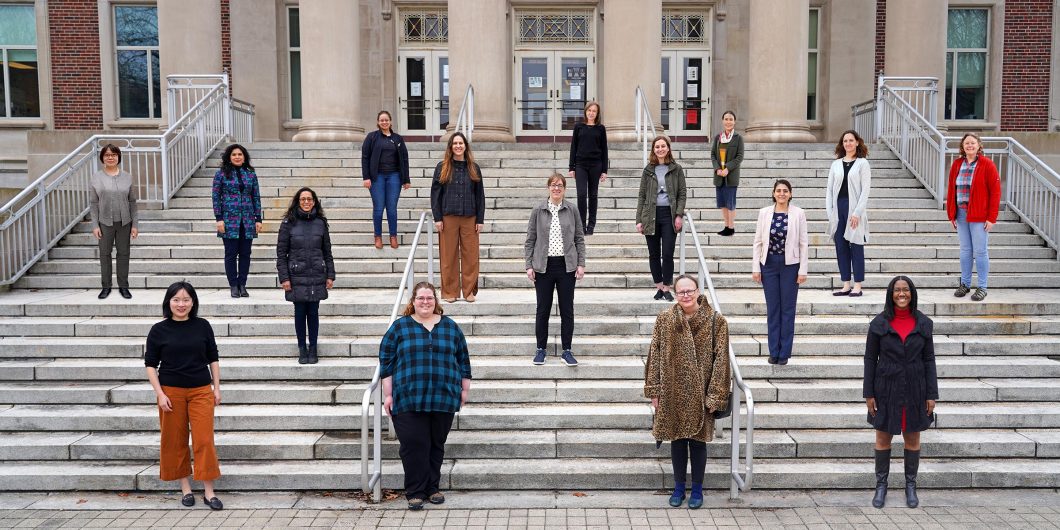Elite universities are abandoning traditional liberal arts education, but new institutions are filling the gap.
The Woke Psyche on Campus
Having lived in America for nearly six years, I still am nonplussed when being asked “How are you feeling?” We Chinese are not attentive to how we feel.
In Chinese society, how one feels bears no significance even to oneself. In a totalitarian society, people ironically have learned an important truth: the world does not exist for their comfort or amusement; once grown up, your feelings do not dictate how others act. In a Darwinian society such as China, people work hard—sometimes ruthlessly—to pursue their needs and desires, never indulging themselves in the romantic but misleading sentiment: “I deserve it.” Taken to the extreme, the Chinese can appear unfeeling. However, they are spared the sense of entitlement that prevails among the Millennials and Gen-Zs in the United States. And this sense of entitlement, along with narcissism and hyper-sensitivity, constitutes what I call the “woke psyche” that is trendy on most campuses today.
In January 2022, Mitch Daniels, the president of Purdue University, issued an annual open letter. In a short section entitled “Where are all the men?” Mr. Daniels expressed one message and one message only: he was proud of the role Purdue was playing in addressing a national problem that there is a 3:2 disparity in women to men on college campuses. Because Purdue’s STEM subjects tend to attract male students, Purdue has managed to maintain a stable male share (57%) in the undergraduate population when other schools saw that share drop to the low 40’s or even lower.
Unless clouded by a woke psyche, nobody in their clear mind or conscience would interpret what Mr. Daniels said as an effort to recruit more men into Purdue’s STEM fields. Quite to the contrary, Mr. Daniels stated unambivalently “We have, and will extend, a host of programs to recruit more women into these disciplines.” And yet 53 professors in engineering who “identify as women” had the effrontery to twist Mr. Daniels’s words to suggest that Purdue was “focused on recruitment of male students” while the current and future women students are “a significant minority within the STEM departments/schools.”
The female professors wrote a response letter to denounce Mr. Daniels. The letter had accumulated 1,257 signatures by March 3. This letter is typical woke sentimentality marinated in such language as “our dismay” and “your message is heart-wrenching for women in STEM because it shows that you clearly do not understand their experiences.”
I have long been curious about why the woke believe that as long as they invoke feelings, the public will buy into their narrative and concur with their claim to moral authority. The woke psyche states that one’s feelings and experiences are the moral authority to which the world must submit. As long as the women faculty felt “dismayed,” Mr. Daniels must have done or said something wrong—morally wrong.
The woke psyche now entrenched on campus has its closest relative in the early 2010s campus ethos of “trigger warnings,” “micro-aggressions,” or “safe spaces.” Most commentators interpreted the 21st-century climate as a contemporary expression and descendant of political correctness dating back to the 1960s. But I see those developments as a different movement. They are a concerted effort to institutionalize infantilization on campus, whereas the 1960s movement was aimed at challenging authority and abolishing administrative rules regarded as too paternalistic.
The 1960s radicals adamantly defended free speech (though the ulterior intent was to lift the restriction on the leftist speech) and objects to any form of censorship coming from the administration. Quite to the contrary, the woke nowadays seek to establish on campus a draconian code of conduct regulating not only speech but behavior. This is precisely a paternalistic treatment that is most responsive to feelings, not reason. Consequently, adult students or faculty members have learned to invoke, even weaponize, feelings to bully others into submission. Note that this is a self-centered, inflated, and melodramatic feeling characteristic of how young children respond to the world. It is not a legitimate emotion we would expect to see in a mature and reasonable individual.
In the woke world, one’s feeling is the sacred object. When one claims to be offended, it is tantamount to say his sacred object is violated, which makes the other party’s alleged transgression a “moral crime.” In that woke logic, the “feeling” of transgression is itself the argument, and more absurd, the authority. Not only is the woke psyche entirely irrational but it is also quasi-religious in nature. Whereas a religious transgression is a blasphemy against God, a sacred object beyond oneself, a woke transgression is a blasphemy against one’s entirely self-construed identity—a construct of the self that has no basis in reality, and worse, leads to an unjustifiably elevated self-image.
To feel is easy and convenient, whereas to think (the prerequisite for public discourse) requires strenuous effort while bringing enormous discomfort because the mind will be unsettled.
Could Mr. Daniels also play the game of sentimentality by claiming to be “dismayed” by the animosity in their transparent scheme to twist his message? Mr. Daniels is too decent, and he is old enough to understand that feelings have no bearing in adult conversations.
Of course, a standard woke grievance letter as such won’t just stick to the issue; it must rehearse an entire list of intersectional grievances, as if to bury the recipient in grief for their transgressions. Predictably, the women faculty felt “disappointed” that Mr. Daniels did not “acknowledge” what Purdue’s Women in Engineering Program has accomplished over the past decades. Mr. Daniels probably thought that this accomplishment was irrelevant to the theme of that section of the open letter. Nonetheless, the women faculty felt hurt because Mr. Daniels had the temerity to cry for the woe of the men rather than acclaiming the women who deserve the center of attention.
Woke justice is essentially retaliation. The historical “oppressors” as a group must atone for their “sin.”
According to the woke, Mr. Daniels must learn his lesson and “do the work,” much as the Chinese Communists thoroughly castigated their “wrong ideologies” in the 1942 Yan’an self-education movement. That movement, also called the Yan’an rectification campaign, took place from 1942 to 1945. It is one of the most significant milestones in the Chinese Communist Party’s history.
Its design and execution in response to political crises confronting Mao at the time have proved to be an effective and recurring means to enforcing conformity to “the correct mode of thought.” Party members were required to thoroughly study prescribed readings mostly written by Mao, followed by “criticism and self-criticism” in both individual and collective fashions. One must go through each “mistaken” thought and then “rectify” it in accordance with the communist party scripture. This was an ideological purification that ended factionalism and enthroned the Mao Zedong Thought as the only orthodoxy within the Communist Party.
In the West, we are told predictably that the gender inequality exists in everything ranging from admissions criteria to faculty hiring to the “overall climate.” The admission criteria are said to “have long favored white men in the past” and Purdue is said to have a “dismissive culture around sexual assault.”
Would a reader expect anything other than the hackneyed indictments nowadays heard in every American college—all of which seem to have suddenly been plagued by gender inequality in the 21st century? The key to propagandizing, after all, is to repeat the same, simplified message everywhere, much as Napoleon chanted in George Orwell’s Animal Farm “four legs good, two legs bad.”
Facts are usually contextual, while propaganda always abides by its scripture.
Mr. Daniels might wonder how many Purdue students would buy into those false assertions that run contrary to their personal experiences or statistics. After all, the 53 female professors represent a tiny slice of the 2,700 faculty and the 1,257 signatures are almost negligible on a campus of 55,000 people. Fortunately, Purdue is not a bastion of wokeism and remains a rare island of resistance.
However, we should never underestimate the appeal and efficacy of progressive ideas because of the small size of the avant-garde. Small indeed is the woke group on many campuses, but they wield a significant, if not dominant, impact on major cultural institutions. Their loudest megaphone gives them the greatest power (not authority). People won’t acknowledge power but they would yield to it either under coercion or incentive. Ideology is a fashion, very contagious, and quickly spreading.
Having lived in China almost my whole life, I learned first-hand how propaganda can instill in the general population a certain mindset that is detached from one’s experiences or facts. Propagandizing is a mechanism for the purpose of preventing thinking while setting feelings in motion once cued.
In this age of thoughtlessness (in Hannah Arendt’s terminology), many prefer propaganda that reassures feelings over public discourse that will inevitably awaken the restlessness of reason. To feel is easy and convenient, whereas to think (the prerequisite for public discourse) requires strenuous effort while bringing enormous discomfort because the mind will be unsettled. But as human beings endowed with logos, it is our moral obligation to think and to fulfill our political nature.



